How to Prevent Hypothermia
Hypothermia is a condition that causes the body temperature to drop dangerously low due to prolonged exposure to cold temperatures. While normal body temperature is 37 degrees Celsius, hypothermia leads to a person’s body temperature going below 35 degrees Celsius.
An individual’s body and brain can’t function efficiently when the body temperature drops too low, and if the condition is not treated properly or on time, it can cause cardiac arrest and death.
Mild cases of hypothermia are quite common, and over 1300 people in the United States are known to die from hypothermia each year. In this article, we will be discussing the symptoms of hypothermia, how to prevent it, and much more.
Signs and Symptoms of Hypothermia
The symptoms of mild hypothermia are:
- Exhaustion
- Shivering
- Weak pulse
- Skin color turning pale
- Sleepiness and clumsiness
- Confusion
- Rapid breathing
- Excessive urination
- Fast heart rate
The signs of moderate hypothermia include:
- Deterioration of mental function
- Poor reflexes
- Dilated pupils
- Heart rate and breathing slowing down
- Loss of consciousness
- Slurred speech
- Low blood pressure
- Stiff muscles
- Abnormal heart rhythm
The symptoms of severe hypothermia are as follows:
- Absence of reflexes
- Fluid buildup in lungs
- Coma
- Low blood pressure
- Cardiac arrest
- Low urine output
- Death
Why is Hypothermia Dangerous?
When a person’s body temperature drops to extremely low levels, it affects their brain and prohibits them from moving or thinking clearly. This is what makes it even more dangerous because a person who develops the condition doesn’t know what’s happening around them or how to deal with the situation.
Who is at Risk of Hypothermia?
Anyone can get hypothermia. However, certain individuals, situations, or conditions amplify the risk of a person developing hypothermia. These include:
- Elderly people
- Infants and children
- Individuals who spend a long time being outdoors
- Drug and alcohol abuse
- People with mental health issues
- Individuals suffering from certain medical conditions, such as hypoglycemia, stroke, shock, and spinal cord injury
- Medications
When to Call for Help
Since hypothermia is an emergency, you should call for medical help the minute someone starts displaying signs of the condition. If hypothermia isn’t treated on time, it can be life-threatening.
How to Help a Person with Hypothermia While you Wait for Medical Help
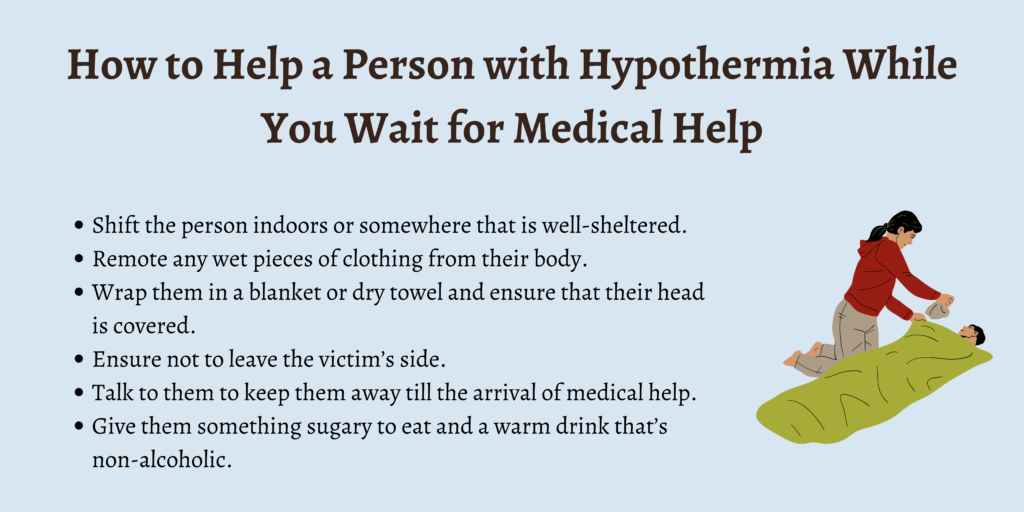
While you wait for medical help to arrive, here is how you can help someone with hypothermia:
- Shift the person indoors or somewhere that is well-sheltered.
- Remote any wet pieces of clothing from their body.
- Wrap them in a blanket or dry towel and ensure that their head is covered.
- Ensure not to leave the victim’s side.
- Talk to them to keep them away till the arrival of medical help.
- Give them something sugary to eat and a warm drink that’s non-alcoholic.
How to Prevent Hypothermia
Here are a few ways to prevent hypothermia:
- Dress in layers when you’re in colder climates and also keep warm clothes nearby in such circumstances.
- When you’re outdoors, and the temperature is low, be sure to put on mittens, hats, coats, and other pieces of winter clothes.
- Eat warm foods and consume warm beverages during the winter months.
- Maintain a warm temperature at home when the weather outside is cold.
- If you feel cold, keep moving around so that your body temperature stays up.
FAQs
1. What are the symptoms of hypothermia?
Some of the symptoms of hypothermia include confusion, shivering, quick heart rate, and exhaustion.
2. How to prevent hypothermia?
Hypothermia can be prevented by dressing in layers during colder climates, consuming warm drinks and foods, and moving around when you feel cold.
3. What causes hypothermia?
Hypothermia occurs when someone is exposed to extremely low temperatures for a prolonged period of time.
4. Can hypothermia be life-threatening?
Yes, hypothermia can be life-threatening if it’s not treated on time.
5. Who is at risk of hypothermia?
The ones who are at risk of hypothermia include infants, children, older people, and individuals with mental health issues.
Conclusion
Here’s what you should know about the treatment related to hypothermia:
- If a person suffers from hypothermia and receives appropriate treatment on time, they usually recover without experiencing any long-term issues.
- The treatment for hypothermia doesn’t have any side effects.
- Once a patient with hypothermia is taken to a hospital, their body temperature is monitored by a doctor till it reaches a normal level.
Therefore, if you or anyone around you experiences symptoms of hypothermia, call the emergency medical services immediately.
Want to learn more about the first aid treatment of hypothermia? Check out our first aid guide to hypothermia.

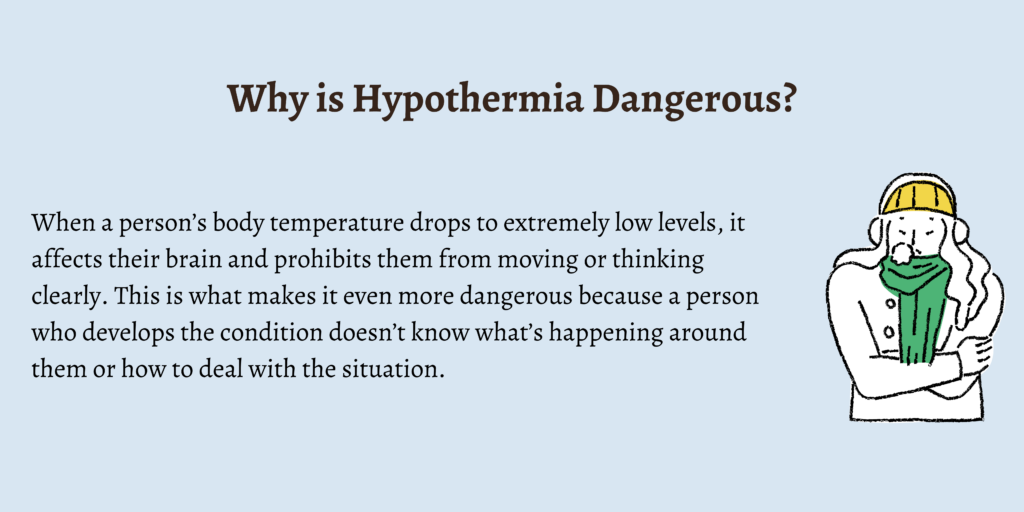
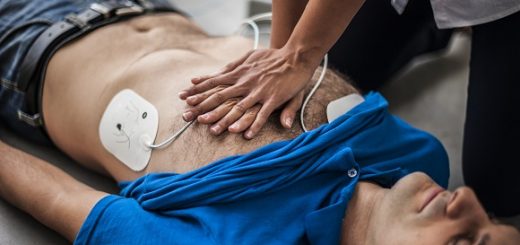
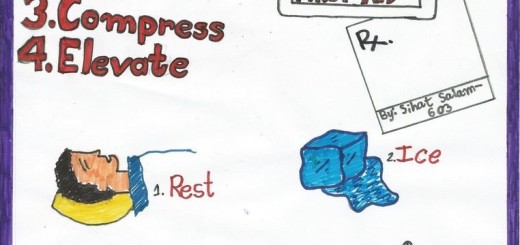
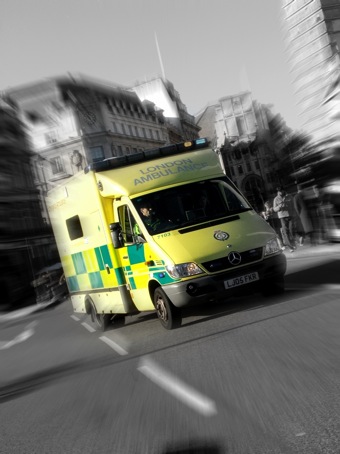


just learned that even cold water will work in time of hypothermia
I already knew about Hypothermia I learned it three years ago in a survival class